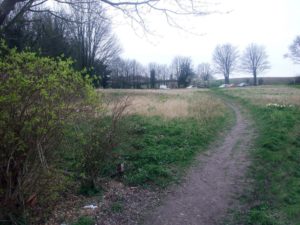Support us from £3/month
We deal with almost 1000 cases a year assisting communities, groups and individuals in protecting their local spaces and paths in all parts of England and Wales. Can you help us by joining as a member?
With other objectors we are delighted to have defeated the proposed exchange of common land at Therfield Heath, near Royston in Hertfordshire.

Sun Hill, Royston – photo: Don Shewan
The Conservators of Therfield Heath and Greens wanted to swap 1.65 acres of common land off Sun Hill for the same area of woodland over a mile away. The proposed exchange was to enable the conservators to build eight dwellings on the area of common to be deregistered, which is on the western side of Royston.
Applications to exchange common land are determined by the Planning Inspectorate on behalf of the Secretary of State for Environment, Food and Rural Affairs, under section 16 of the Commons Act 2006. The inspector must consider the interests of those with rights on the land to be deregistered as well as the interests of the neighbourhood and the public. Because the case was controversial a public inquiry was held earlier this year.
In his decision, the inspector, Mark Yates, refused the application. He considered that the exchange would lead to the loss of land at Sun Hill that has in the past been used for recreation and would have an adverse impact on those living close by. Also, there was evidence that the replacement land was already being used by the public and therefore there would be an overall loss. These points were made by the objectors.
Says Don Shewan, a local resident and member of the Open Spaces Society: ‘Against all the odds, a small team of self-funding opponents challenged the conservators and their legal advisers to prevent the deregistration of common land on Therfield Heath. We are delighted with the planning inspector’s decision not to allow the sale and exchange of valued land used by local families for generations.
‘Common land is such a valuable resource; we must protect it from developers.’
